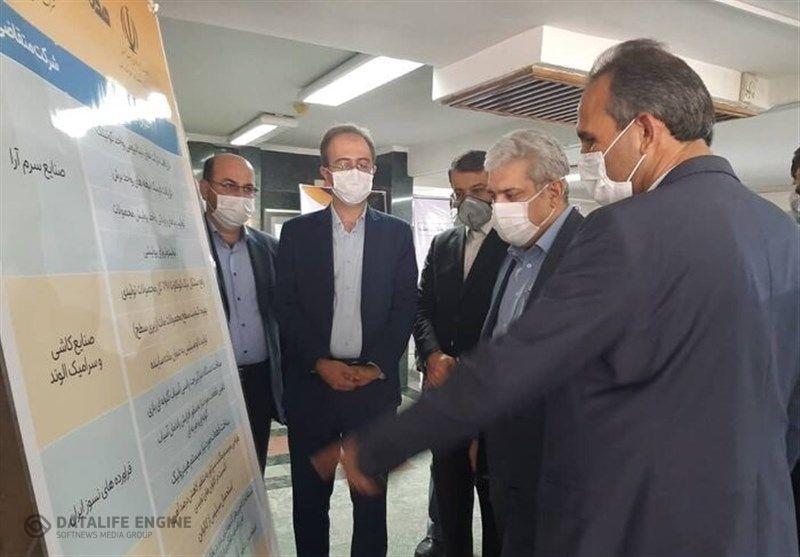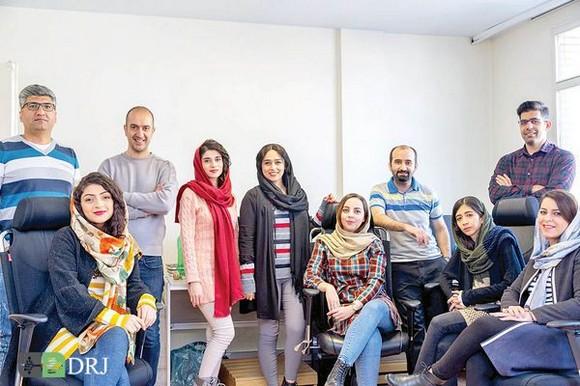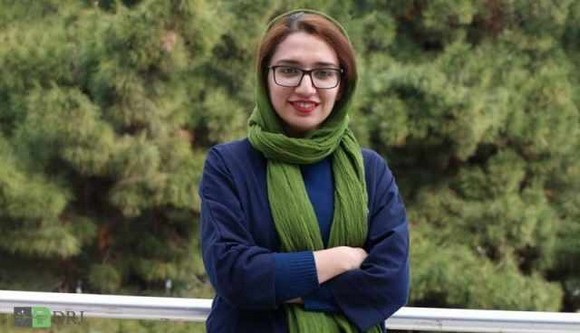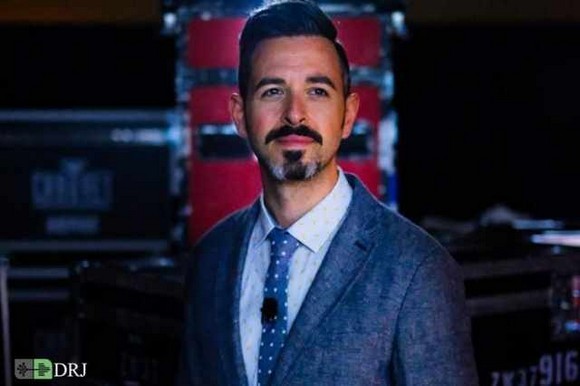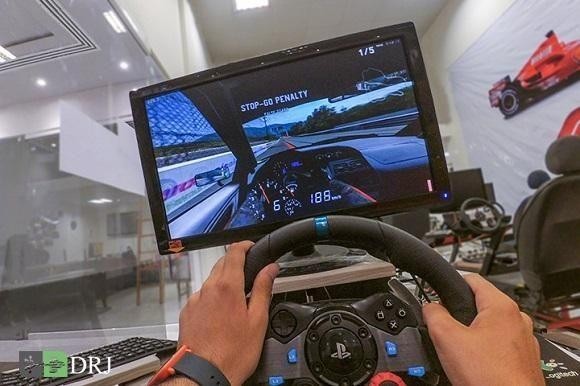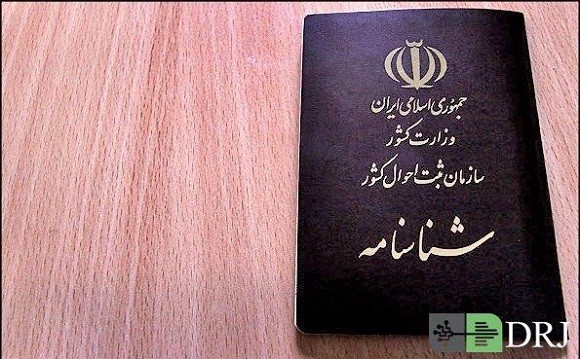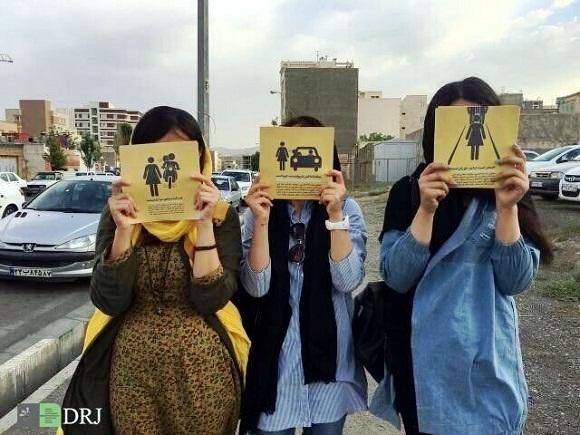M Zaki Kirmani
M . Zaki Kirmani
M . Zaki Kirmani was born on June 28 , 1950 in a village in District Bulandshahr ( UP ) India . His primary education was at the village school and he graduated from AMU , City High School , Aligarh in 1965 . Thereafter he studied at Aligarh Muslim University , Aligarh ( India ) receiving degrees in Chemistry ( Main ) and Organic Chemistry ( Postgraduate ) in 1970 and 1972 respectively . He received a Ph . D . Degree in Heterocyclic Chemistry in 1979 from Indian Institute of Technology ( IIT ) , Delhi .
Kirmani’s lifelong quest in the Islam and Science discourse began during the next two years . In 1979 he was elected All India President of the Student Islamic Movement of India and remained so till 1981 . This two year sojourn marked the end of his active involvement in Chemistry . Along with a group of friends who were all interested in taking new initiatives on thinking Islamically about science and its related issues , Centre for Studies on Science ( CSOS ) was founded at Aligarh in 1982 for conducting research and training on related issues . This was followed by the formation of The Muslim Association for the Advancement of Science ( MAAS ) in 1983 for cultivating similar ideas among working scientists . He continues as the founder chairman of CSOS , and was also founder Secretary of MAAS until 1993 . Currently he is member of the Governing Council of MAAS .
His first major work on Islam and Science was the Journal of Islamic Science , which was first published in 1985 from Aligarh , U . P . , ( India ) . He was editor of the journal until 1998 .
The development of his ideas in Islam and science and their relationship to modern science was gradual . He maintains that in the first phase of his intellectual shift from pure science to Islam and science he could not see , like many other Muslim Scholars , beyond comparing scientific information and vision with the scientific knowledge often found in the Qur’an . However , gradually my vision expanded to visualising a strong philosophical and sociological base for science , which could be developed and articulated on the basis of the Qur’anic thoughts . He believes that if this basis could be objectively presented , it will significantly contribute to the growth of a healtheir modern science and technology on the one hand , and will remove many misunderstandings among the Muslims on the other . Its popularization among the Muslims and especially their religious education institutions , would improve and revitalize Muslims affinity to science and their potential for the promotion of modern science .
Kirmani’s major areas of interest in Islam and science have been philosophy , sociology and methodology of science , science policy and ethics . The broader areas of science ethics which include questions of philosophical and sociological import are of special interest to him . The dominant theme in Kirmani’s published work is critical evaluation of the impact of science on life and society and the methodology of scientific studies . His most recent work The Qur’an and the Future of Science ( in press ) invites the attention of modern intellectuals to find ways for a humane and spiritually strong base for the development of science and technology . It also deals with questions related to science and technology in the global matrix and the role of Qur’anic values in dealing with the emerging problems .
He claims that the most important features of modern science are its stress on ( 1 ) total intellectual freedom in doing science , ( 2 ) solving problems on the basis of scientific knowledge , ( 3 ) the scientific method as the most authentic and dependable way of knowing , ( 4 ) its superiority on other forms and means of knowing and ( 5 ) its acceptance and rejection in matters intellectual , social , religious and spiritual on the basis of the yard stick of science .
From the Islamic point of view ‘Nature’ is ayah ( a sign of God ) and this imparts an element of mild sacredness in all natural forms and manifestations . Furthermore , and in fact more important , Islam encourages every form of the human-nature interaction simultaneously , making it prone to accountability . This interaction is therefore a spiritual act . It is restrained and controlled interaction with a sense of responsibility and accountability both to the society and to the highly developed conscience .
Kirmani says that today’s science is technically the continuation of Islamic tradition , but it is characterized by dominant ethics and philosophical views which are non-Islamic in origin and are thus at times un-Islamic in character . Since science in its essence is the study of matter and material phenomena via methods based on sense perception , modern science , technically speaking , is in fact an extension of the Islamic scientific tradition , which was dominant until fifteenth century . The Qur’anic teachings , which comprise instructions for man’s behavior and his relationships with nature and various forms of creation around him , and also provide guidance and instructions in shaping man’s creative and intellectual impulses , together have woven the socio-ethical matrix in which Islamic science tradition actually flourished and prospered . However when Islamic culture and civilization entered Europe , the socio-ethical component of science , being essentially religious and ideological , was consciously or unconsciously not accepted in totality and only the technical aspect survived . The ethical component was initially replaced by the Judo-Christian tradition which , for a variety of complex reasons , transformed gradually and became completely secularized .
Bibliography
Kirmani , M . Zaki , “Quest for New Science” in Bulletin of the Association of Scientific Workers of India , Vol . 14 , pp . 85-86 ( 1984 )
Points out to the nature of crisis science is suffering from and the need to do remedial measures .
— , “New Ideologies on Science” in J . Islamic Science , Vol . 9 , No . 1 , p . 67 ( 1985 )
Briefly introduces issues which arise as a result of increasing infringement of science in cultural boundaries .
— , “Ghazali Needs Revival” in J . Islamic Sci . , Vol . 1 , No . 1 , p . 83 ( 1985 )
Imam Ghazali , a prominent philosopher of Islam , took a position when Greek philosophic thoughts were introduced into Islamic civilization and created ripples in the Islamic intellectual and theological circles . Ghazali’s position is considered to be Islamically authentic and may be able to contribute in similar situations today .
— , “A Critique of Criticism on Science” in J . Islamic Sci . , Vol . 1 No . 2 , pp . 39-51 ( 1985 )
Discussion and analysis of various trends observable in the contemporary criticism of science and technology . It is obvious that the measures suggested to solve the problems caused by S&T do not have the potential to grapple with the issues . Mere alterations in the socio-economic and socio-political structure of the day , as suggested by the critics , are not sufficient to meet the individual and societal problems of the time . What is needed , in fact , is a new world view and a new epistemology of science and technology .
— , “Muslims Lag in S&T Activity” editorial in J . Islamic Sci . , Vol . 2 , No . 1 , p . 4 ( 1986 )
Muslims lag in science and technology activity and their lack of involvement in S&T has more than one reason . One important reason is the fact that they find little spiritual stimulation and motivation to work for modern science . This editorial analyzes this view in terms of social perspectives of the Indian sub-continent .
— , “Imitative Innovative Assimilation: A Critique of Waqar A . Husaini’s Scheme of Contemporary Islamic S&T Rebirth” , J . Islamic Sci . , Vol . 2 , no . 2 , pp . 69-74 ( 1986 )
The author has critically evaluated the idea of imitative innovative assimilation given by S . Waqar A . Hussaini in his thought-provoking book Islamic Environmental Systems Engineering . There is no doubt that Muslims in the medieval period borrowed science from Greece , Iran and India without losing their Islamic character , but today the situation is entirely different . This situation demands a re-classification of knowledge on the basis of the Islamic theory of knowledge and societal needs before attempting to assimilate any facet of western science and technology into Islamic society .
— , “How to Begin with the Contemporary Islamic Science” editorial in J . Islamic Sci . , Vol . 2 , No . 1 , p . 5 ( 1987 )
This editorial outlines preliminary steps required to develop Islamic science . ( 1 ) Articulation of the Islamic view of Nature and its comparision with dominant western view ( 2 ) Internalization of science and identification of factors which may psychologically stimulate the believers to scientific activity and ( 3 ) development of norms and fixation of priorities of R&D etc .
— , “Issues in Islamic Science” in J . Islamic Sci . , Vol . 3 , No . 2 , pp . 41-69 ( 1987 )
Viewpoints of several authors are critically examined and reviewed . Three distinctly separate viewpoints regarding Islamic science have been identified . These views have their origin in the viewpoints of the individual authors with regard to Western science . Science and technology being neutral , the Islamic consciousness and commitment of the Muslim scientists would , in all probability , render their scientific activity Islamic . This constitutes one of the points of view . According to the second point of view , the neutrality of science and technology will be determined by Islamic shariah and the resulting scientific activity will be Islamic science . The third view obviously indicates that the Western science is biased towards western cultural values and in order for a scientific activity to be Islamic it must have roots in Islamic concepts of Nature , Man , knowledge and values .
— , “We Need Science But . . . . . ” in J . Islamic Sci , Vol . 7 , No . 1 , p . 5 .
The need for and the significance of developing excellence in science and technological skills is highlighted by making comparisons with the nature of skills which Muslims possessed during the early period of Islam . It has been argued that Muslims in the Prophet’s ( pbuh ) time countered their opponents with a qualitative equivalence in skills . Strength of Iman ( faith ) offset their numerical inferiority . The qualitative equivalence in skills is not available today and it is necessary to achieve such a level for survival and good living .
— , “Islamic Science Moving Towards New Paradigm” in An Early Crescent: The Future of Knowledge and Environment in Islam ed . by Ziauddin Sardar ( London: Mansell , 1989 )
— , “Issues in Islamic Science” appeared under new title in J . Islamic Sci , Vol . 3 No . 2 .
— , “An Outline of Islamic Framework for a Contemporary Science” in J . Islamic Sci . , Vol . 8 , No . 2 , ( 1991 )
There is a genuine demand among much of the world population for science attuned to an Islamic social ethos . Its genuineness lies , in part , in the evidence which favours a distinctive nature of scientific activity in the medieval Islamic lands , as provided by modern historians of science . In addition to economic and political factors , this demand is rooted in a sense of frustration caused by modern science in certain vital areas of life and human activity . Its hostility to nature , culture and ideologies has served to increase this frustration and has led several scholars to contemplate their reorientation on Islamic lines . This reorientation is likely founded on certain basic assumptions e . g . there is moral order in the universe , the objects and various phenomena under scientific study are Ayat ( signs ) of Allah’s power , study of these Ayat is a spiritual function and religious duty , etc . The Qur’an shapes the attitude of scientists and gives meaning to findings and discoveries . This approach and the meaning derived from it originates in the concept of Reality to which the noble Qur’an points . The scientists who ponder over and investigate with this perspective are held in high esteem by the Qur’an . Scientific activity in this manner is socially obligatory in Islamic jurisprudence and is the means of achieving Allah’s pleasure . The basic elements with which an Islamic scientific activity can be developed today is presented .
— , “Rebirth of Islamic Civilization , Science and Muslim Intellectual” editorial in J . Islamic Sci . , Vol . 12 , No . 1 ( 1996 )
An attempt has been made to identify and contrast basic ideas in the approaches of three modern exponents of the Islam and science debate , Syed Hossein Nasr , Ziauddin Sardar and Naquib al-Attas .
— , “Can Science Dispense with Religion?” a written interview in Can Science Dispense with Religion . ( book ) , edited by Mehdi Golshani 1998 ( Tehran: Institute of Humanities and Cultural Studies ) Iran , p . 129-134 .
Topic discussed are: definition of science and religion; possibility of conflict between the definition of the two; in which domain of the two the conflict may arise; the ground of the conflict; role of religion in the development of science in the west; possibility of a religious science; can dispense with religion? ; can the domain of activity of science and religion be separated?
— , “Science and Technology and the Revival of Islam in Contemporary World” in J . Islamic Sci . , Vol . 12 , No . 1 ( 1996 )
A general understanding of nature and the scope of scientific and technological development are profoundly different and their role in shaping man’s thinking and directing the course of socio-political and economic changes in modern society is significant . In view of this , the author asserts that the revival of Islam , being a phenomenon of attitude and civilization , can’t ignore science & technology , and it should be taken extremely seriously in designing strategy and course of action for Islamic revival . The author relates this assertion to the early period of Islam and emphasizes that the vast difference in power related to science and technology that exists today was not observed between Islamists and their opponents during the time of the Prophet . A sort of parity in power , i . e . S&T , has become , rather , a religious necessity which can’t be achieved merely by imitating the modern west . An Islamic worldview is required to motivate a Muslim’s mind to be religiously involved in pursuit of science .
— , “Islamic Science Debate: Entering the New Millennium” in Hamdard Islamicus , Vol . XXIII , No . 4 , pp . 7-36 ( 2000 )
Nature and dimensions of current criticism of science are introduced . The response of Muslim thinkers and the positions they have taken with regard to the criticism are discussed by classifying them into schools of Islamic sciences as science in Islamic perspective , Islamic Science: the fundamentalists , and Aligarh school which amalgamate Islamic science debate with missionary traits . The shape of science in these perspectives has been discussed .
— , “The Qur’an and the Future of Science ( Part-I )‘ in Global Religious Vision Vol . 1 No . 3 , January , 2001 .
The nature of knowledge contained in the Qur’an is compared with the one generally employed in the scientific investigation . Nature of scientific environment the Quran creates , and the basic elements of the philosophy of science in Islamic perspective have been outlined .
— , “The Qur’an and the Future of Science ( Part-II )‘ in Global Religious Vision ( in press )
Second part discusses the basic thoughts of sociology of science in Islamic perspective , potentially scientific information in the Quran , the Quran and the future of science , and , the features and the shape of the debate on Islamic science currently going on .
Books Reviewed by M . Zaki Karmani
— , “Renaissance: Reformulation of Islamic Thought” by Ehsanullah Khan , Muslim World Book Review , UK , 1989 .
— , “Environment and Development: Ethical and Educational Consideration” by Azizan Hj . Baharuddin , Periodica Islamica , Vol . 6 , No . 3 , p . 51 ( 1996 )
— , “The educational philosophy and practice of Syed Mohammad Naquib Al-Attas by Wan Mohd Nor Wan Daud” in J . Islamic Sci . , Vol . 15 , No . 1-2 [in press]
Books
— , Technology in Islamic Period , Urdu Translation of Islamic Technology by Ahmad al-Hasan & Donald Hill ( Aligarh: Centre for Studies on Science , 1996 )
— , The Qur’an and the Future of Science ( Delhi: International Centre for Religious Studies , 2001 ) ( in press ) .
June 5 , 2001
Elma Harder


